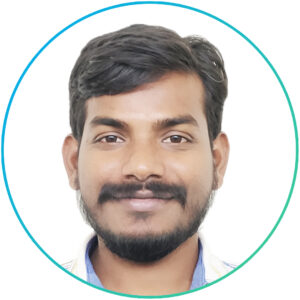Project No.1 Of The Vasudhaiva Ride: Education For Change
Prashant Kumar, upcycling artist and machine enthusiast, and Ben Reid-Howells, community organiser and musician, are on a two year journey riding from India to Scotland doing projects for peace, sustainable living and community wellbeing. This is the story of their first project in accessible education, Bombay.
The Bombay Project.
Sai Baba Path Public School bringing innovative pedagogy to underprivileged communities of students.
The first project of the Vasudhaiva Ride was at Sai Baba Path Public School, a government school in inner city Bombay that serves the community of Jijamata Nagar, a nearby slum area. Sai Baba Path school has a unique educational program changing the way the local community experience education. Prashant and Ben connected with Meenal Srinivasan, part of the Educo team running this alternative form of teaching, and soon a project formed.
Prashant and Ben interacting with teachers at Sai Baba School.
Ben’s background is in education. His last two years in India before starting the ride he served at Mahindra United World College, working to help the school towards its mission of making education a force for peace and a sustainable future. At UWC, Ben helped to develop the experiential education program and with it pedagogies (teaching methods) of project-based learning and service learning, making education a experience that centres around the learner and has the end goal of creating active, conscious global citizens. Ben left his work at UWC to explore different paths of creating positive change in the world, and was especially keen to work in contexts of less privilege.
Also Read: The Vasudhaiva Ride: 2 Young Men, 80,000 KM, 25 Countries, Spreading Love Across Communities
For one week Prashant and Ben led sessions and worked with the teachers, students and families of Jijamata Nagar, a community brimming with hospitality and resilience. Their goals in this project were to assist in the school’s shift from traditional teaching methods towards learner-centric, values-based pedagogy; and to introduce students to concepts of ecosystems, environmental stewardship and upcycling.
Ben interacting with kids from the Sai Baba school.
Prashant showed students examples of living with nature and “How to use waste smartly instead of running from it”: upcycling workshops that showed students everything from bird feeders to lighting and seating, and explained the need to lower our demand as consumers of raw materials, instead shifting to a circular system of reusing and upcycling.
Ben led sessions that took students outside of the classroom, recreating an ecosystems web to understand the interconnectedness of all things, human and non-human.
Prashant’s session
Drawing on his work at UWC, Ben led a teacher-training session, in which they shared with the all-local, 95% female teaching team visions for socially relevant education and tools for making these visions a reality.
Prashant’s upcycling work: One of the photos he showed to students to give them an idea of what upcycling can look like. The room was full of Oooohs, and Awwwwws. Ben and Prashant about Bombay Project
Ben: For me our time in Bombay was made worth it in those sessions with the teachers. It was a quietly amazing experience, working in a circle with these teachers who were learning a new way to teach, but one that totally matched up with their personal ideas of what teaching is really all about.
Prashant: It was a new experience for me. Education is not my profession and it was a satisfying feeling interacting with those kids in their school and their community. I could feel the strength of these young people who are our future.
Ben: We would eat lunch together on the floor of a classroom between session and talk about how students need to be more curious, learn through failure and express themselves freely about social issues. And they weren’t yuppie international school teachers: they were local women from the surrounding community, seeing their own roles as teachers in a whole new light.
After some time we shifted into the homes of the families of Jijamata Nagar. Here we saw the strength of this community, labeled as a slum, full of people passionate about wellbeing in their community and ready to share their food and home with us.
Children in the slum.
This is how it is with Indian hospitality which at the end of the day is a reflection of the people, usually women, who cook the food! The care people showed for us as guests, the kindness and love, it came out in the food. I think we each gained one kilo!
Prashant having lunch in one of the houses in the community. Session on Peace What is peace? The young students took turns explaining the importance of listening to others, feeling compassion and empathy and expressing insights few professional a…












